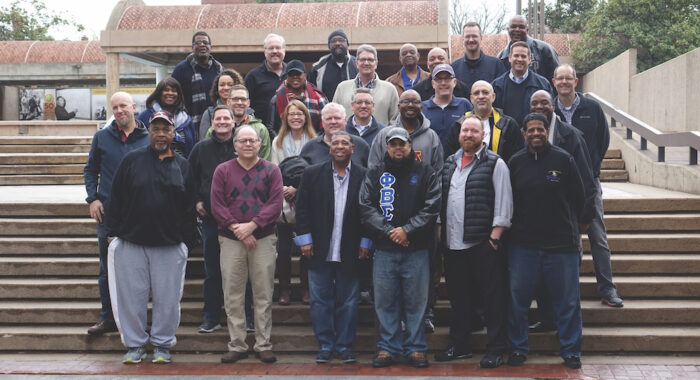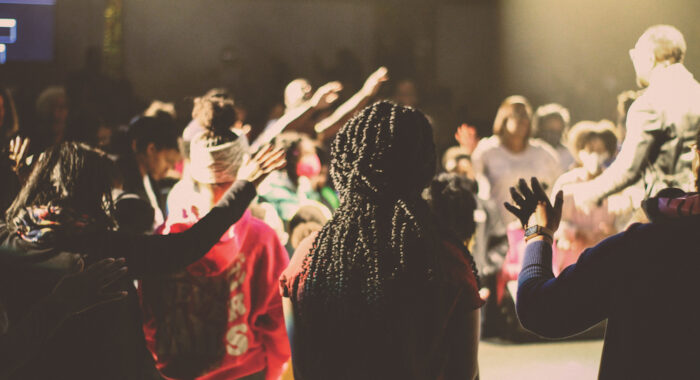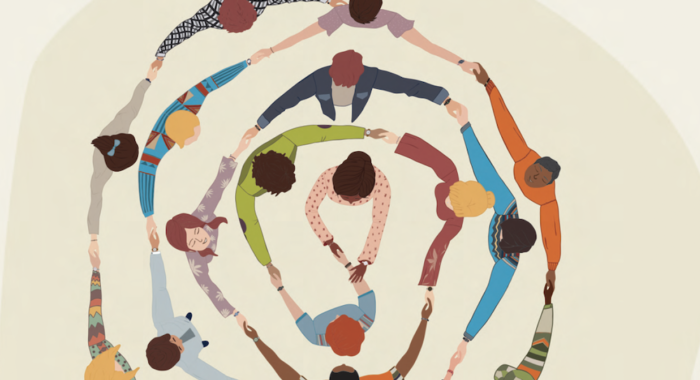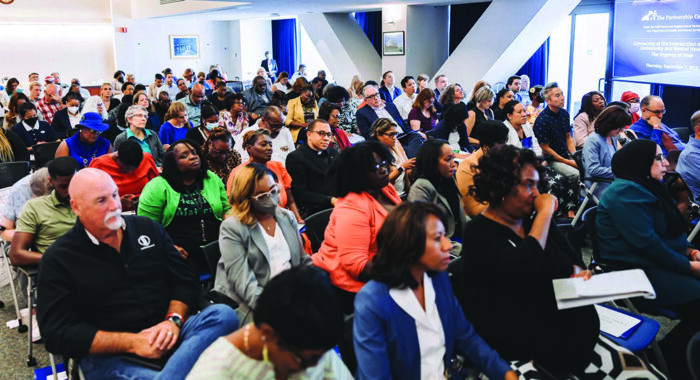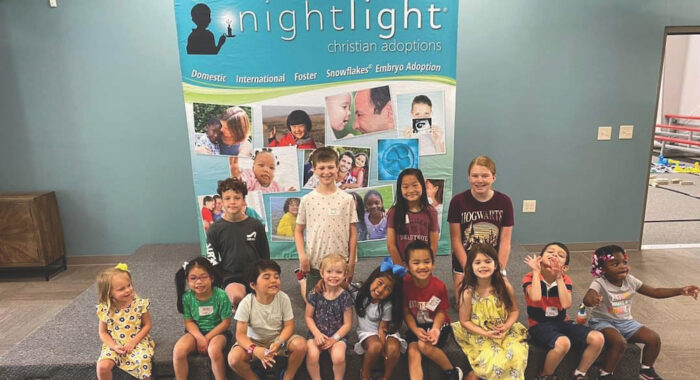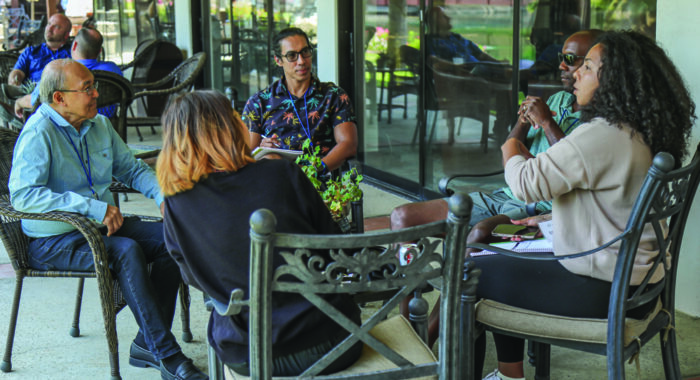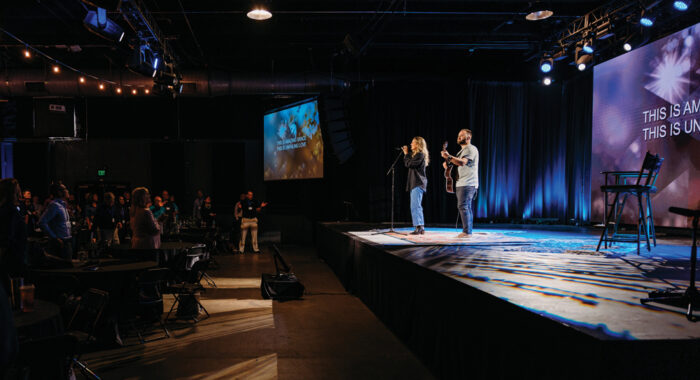Terri and Jay believe God’s love is a central value for how followers of Christ live, love and serve. However, they’ve experienced love trampled upon by others’ cold, indifferent and abusive behavior.
Like them, many of us have endured — to varying degrees — verbal, physical, sexual and spiritual abuse; racism; gaslighting; sidelining; or power/political dynamics. Sometimes these things happen within a church community. All of these things reveal a lack of love.
Terri was a new believer when she was molested by the married young adult pastor. The spiritual and sexual abuse left her confused, shamed, devalued and traumatized. When someone denies or violates our deeply held values and morals, such as love and respect, it can inflict a moral injury. Church hurt is a betrayal-based moral injury because we expect better from the Church.
Insomnia was the first sign that Jay had church hurt. Each night he replayed the harsh remarks, twisting of Scripture to cover controlling behavior and occasional off-color jokes. After several women and staff of color complained, they were marginalized. Then the pastor announced a restructuring but only laid off those he felt threatened his authority. Jay was shocked but kept quiet. But after he did speak up about the injustice, he was next in line. After 10 years of ministry, his salary and benefits were callously cut.
Church hurt profoundly impacts our relationship with God, others and ourselves. We struggle to reconcile Christ’s love and sacrifice and the damage done by the Church. We can have an existential crisis and question life’s meaning and purpose. The pathway to healing involves cycling through phases that I synthesize as Feeling Safe Enough, Remembering the Harm, Healing, and Repair. Healing happens quickly or over time, and we can go at our own pace.
Feeling Safe Enough. Church hurt silences our voices and choices. It is hard to ask for help and unsafe to confront our abusers. We may leave a church or denomination so we can heal. Although tempted to jettison our faith, we don’t need to leave Jesus, our first love. Although we don’t believe or feel it’s true, Jesus the Good Shepherd finds the wandering sheep or the one kicked out of the fold. He heals and helps us to feel safe enough again. We need empathetic witnesses who are safe enough to pray with us and help process and address our pain. When ready, we enter the second healing phase, remembering.
Remembering the Harm. We cycle through denial, anger, bargaining, grieving and speaking the truth about how harm affects us, and then we move forward. Spiritual abuse and manipulation jeopardize our ability to remember well. Terri’s abuser gaslit her so much that she also denied her abuse. His anger over being exposed tried to short-circuit her healing. He used anger as fuel to avoid accountability and consequences and to assert that he was the real victim.
Healing. In therapy, Terri and Jay realized how angry and sad they were. They tried to bargain with God for the pain or situation to disappear. It didn’t work. When Terri and Jay stopped berating themselves for hurting, they became more compassionate, patient and loving toward themselves. Deep healing occurred as they wept over what was lost and stolen. Slowly they began to reclaim their true identity as beloved children of God.
Research shows that positive experiences and relationships can help reverse the effects of trauma, as does the perpetrator’s confession, repentance and accountability. Jay was healing from church hurt but also faced perpetrator-based moral injury. This is when we ignore or transgress our own values and harm others. Healing for Jay included asking for forgiveness and forgiving himself for unwittingly being complicit.
Repair. Terri’s abuser refused to repent. Although she eventually forgave him, there were consequences. She set boundaries around contact and filed charges with the authorities. It was profoundly healing when Jay and Terri’s churches addressed and repaired the harm. Their relationship with God, others and even themselves deepened. Although Jay moved to a new church, the elder board at his former church committed to making amends for past and future actions that contradicted God’s heart.
Friends, we are all on the pathway to healing and resilience, and it will always have us walking toward rather than away from Jesus, the heart of love. He is the one who guides us in each step.
Check out 8 resources for preventing and healing church hurt ![Arrow]()
Sheila Wise Rowe is a counselor, spiritual director, educator, writer and speaker. She is passionate about matters of faith and emotional healing, and advocates for the dignity, rights and healing of abuse and racial trauma survivors, and racial conciliation. She has counseled and taught counseling in Massachusetts, and Paris, France, and for a decade ministered to homeless and abused women and children in Johannesburg, South Africa. Wise Rowe is a member of the Community Ethics Committee of Harvard Medical School, a policy-review resource for its teaching hospitals. She also speaks at retreats, colleges, churches, organizations and seminaries in the United States and abroad. She is the author of “Healing Racial Trauma: The Road to Resilience” and “Young, Gifted, and Black: A Journey of Lament and Celebration.” Wise Rowe holds a master’s degree in counseling psychology from Cambridge College.




 View All Articles
View All Articles 














